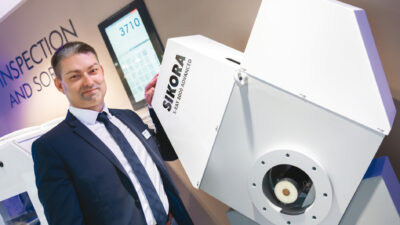CERTIFICATION EFECTİS ERA AVRASYA


processes, systems, or people. The ultimate purpose of certifying products, processes or services is to give confidence to all interested parties that the product, process, or service fulfills specified requirements. The value of certification is the degree of confidence and belief in demonstrating by a third party with objectivity and competence that the specified conditions are met.
Certification of products, processes or services is a means of providing assurance that they comply with the requirements specified in standards and other normative documents. Regulations have been written out with the aim of facilitating the national and international acceptance of materials, products, processes, and services, and as a result, the improvement of international trade. The Construction Materials Regulation was also drafted to determine the procedures and principles regarding the placing of construction materials on a market and keeping them on the market by establishing the rules for the declaration of performance regarding the basic characteristics of construction materials and the affixing of the CE marking to the materials. The Construction Products Regulation (CPR) builds on the Construction Products Directive (CPD) and aims to remove technical barriers to trade in construction materials within the European Economic Community (EEC). To achieve this goal, CPR sets out 4 main principles:
• A harmonized technical specification system
• Systems for evaluating and verifying the constancy of agreed performance for each product family
• A notified body structure
• CE marking of products
CPR harmonizes test and evaluation methods, the principles of the Declaration of Performance (DoP) for the product and the conformity assessment systems of construction materials but does not interfere with national regulations on construction work. The selection of the conditions/values sought at the national level for a particular purpose of use is left to the legislators, public and private sector representatives. However, the conditions/values sought at the national level must be expressed in a way that is consistent (in terms of technical jargon) with the harmonized technical specifications.
Certain provisions of the CPR entered into force on 24 April 2011. Initial changes have been applied to notified bodies and technical assessment bodies and their working principles. The entire regulation on manufacturers, importers and distributors came into force on 1 July 2013, replacing the CPD.
Construction material as defined in the Construction Products Regulation (305/2011/EU) constitutes all materials or material sets that are supplied to the market for permanent use in all kinds of construction works or in any part of these works and whose performance affects the performance of the construction works regarding the basic requirements. Building materials can be considered all of the components that are an immovable part of the building used in the building. Choosing the right building material is critical for slowing or preventing the progression of fire in buildings. For this reason, each country has certain requirements for fire resistance and reaction to fire building materials. However, due to the great diversity of building materials, the evaluation of these behaviors has been partially based on engineering decisions. The safety of building materials to be used in the building construction process is checked, including whether it does not contain elements that could harm people and the environment. Objectionable construction materials include materials containing harmful substances, occupational safety risks (dangerous) and objectionable waste. The concept of sustainability, which has emerged due to reasons such as the rapid consumption of fossil energy resources, air pollution caused by greenhouse gases, the effort to minimize the amount of energy use, and the improper use of the produced materials, lays the groundwork for the research and development of new generation materials. Therefore, studies on new construction materials that have low greenhouse gas emissions and affect sustainability rather than traditional production have gained momentum in recent years.
Efectis Era Avrasya holds the know-how and experience to support building owners, manufacturers and authorities in the application of the most suitable building materials, performance measurements on fire safety of buildings and determination of their effects. In this respect, Efectis supports the ideal selection, application, and use of building materials.
We offer fire testing and product certification services on a wide range of building materials. Also, we have a full range of services covering R&D analysis, batch-based tests, and full compatibility tests throughout the entire process from the preliminary evaluation stage of a newly developed product to the final product.
The conformity assessment process is carried out in order to determine the conformity of the evaluated product with the relevant technical regulations. Therefore, the manufacturer must ensure the suitability of its products to be evaluated during this process. As a matter of fact, notified bodies have the right to suspend or cancel the Certificate of Conformity of Factory Production Control or Constancy of Performance in case it is determined that compliance has not been achieved during the process and the necessary corrective measures have been requested, but the necessary corrective measures are not taken.
Manufacturers are responsible for maintaining conformity as well as ensuring conformity in the conformity assessment process. If notified bodies, after issuing the certificate of conformity, determine that the product is non-conforming during the surveillance they will carry out as per the frequency given in the relevant Harmonized standard, they may suspend or withdraw the certificate of conformity already issued and given to the manufacturer, proportionally to the nonconformity. Efectis Era Avrasya has been serving for many years as a Notified Body (N.B 2184) in CE certification within the scope of Construction Materials Regulation for construction materials to be supplied to the markets of countries within the European Economic Area in product certification.
We are also a testing and certification body approved by the UAE (United Arab Emirates), Qatar, Kuwait, and Saudi Arabia for product certification of building materials with fire performance classification. Thanks to the Certificate of Compliance we have issued, building materials manufacturers can easily present their products to the market in Middle Eastern countries.
We also offer our voluntary certification program, “Efectis Certified” certification as a symbol of fire safety. The relevant products in the “Efectis Certified” certification program are products that have been permanently installed in buildings and whose fire behavior requirements have been evaluated.
As known, in parallel with the withdrawal of the United Kingdom from the European Union, it will become mandatory for companies wishing to export to these countries to have the UKCA marking of their products as of January 1, 2023. In partnership with the UK/Northern Ireland Efectis campus and 2822 UK Approved Body Efectis UK/Ireland Ltd, Efectis Era offers the UKCA marking to Turkish building material manufacturers for the Eurasian UK market. Companies that successfully carry out the conformity assessment steps for their products can take place in the UK markets with their certified products bearing the UKCA marking.
Efectis ensures trust on your product in fire safety with the most comprehensive facilities in testing and certification, while helping you reach global markets.




